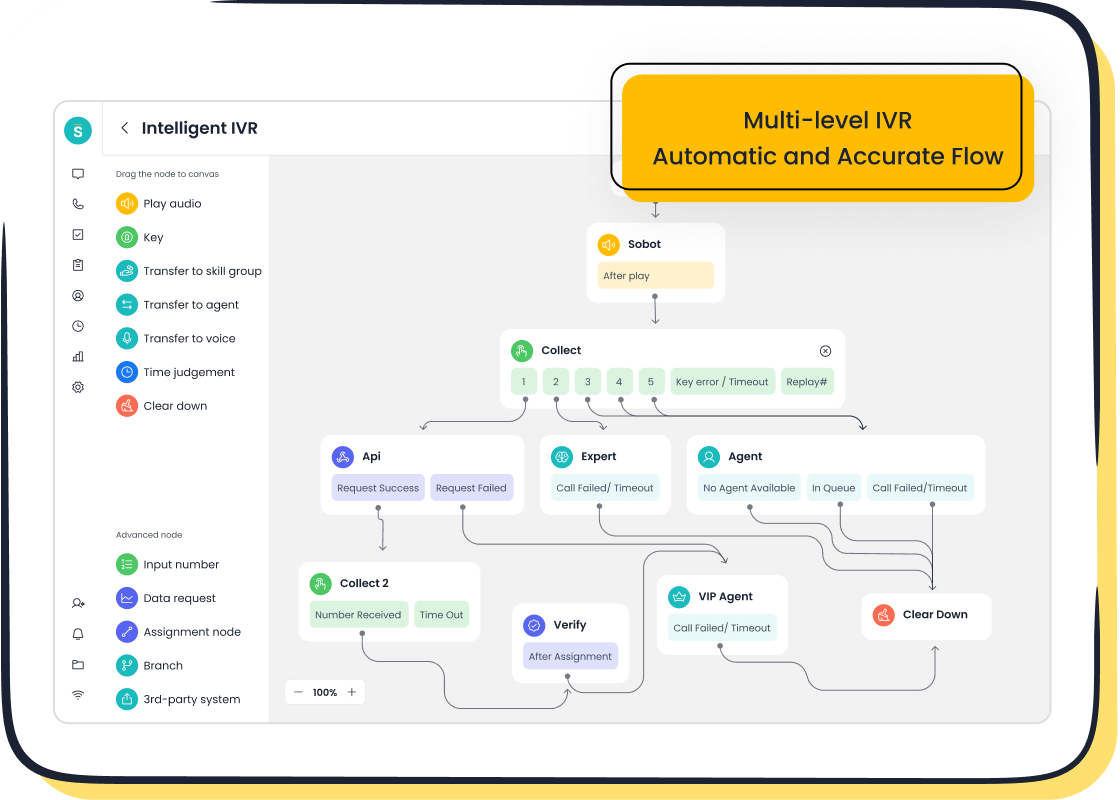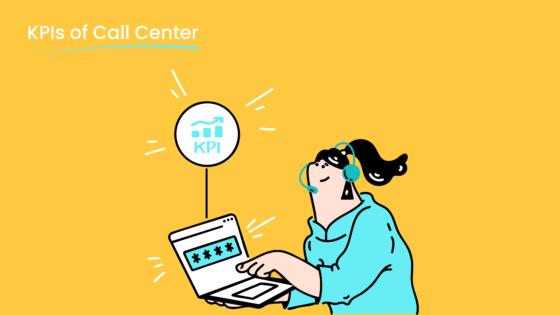Contact center agent skills training guide for modern teams

You can build strong contact center agent skills with structured, ongoing, and adaptive training. Research shows that soft skills—like empathy, adaptability, and communication—often drive customer service success more than technical skills. Technical skills help you complete tasks, but soft skills shape how you connect with customers and solve problems.
- Soft skills such as problem-solving and emotional intelligence foster positive relationships and boost workplace culture.
- Technical skills enable you to use systems like Sobot AI and Sobot’s Voice/Call Center, which support modern customer service training.
- Training never stops. Modern teams use microlearning, AI tools, and real-time feedback to grow.
You should always focus on continuous improvement and put the customer first.
Contact center agent skills defined
Soft skills overview
You need strong soft skills to succeed as a contact center agent. These skills help you connect with customers, solve problems, and build trust. Industry research shows that communication skills, empathy, and problem-solving are the foundation of contact center agent skills. For example, nearly 50% of customers may leave a brand after just one poor support experience. This fact highlights the importance of soft skills training for every agent.
Tip: Soft skills training should focus on real conversations and active listening. Practicing these skills helps you handle difficult situations and reduce misunderstandings.
The most essential soft skills include:
- Active listening: Pay close attention to what customers say and respond thoughtfully.
- Empathy: Show customers you understand and care about their feelings.
- Patience: Stay calm, even when customers feel upset or confused.
- Positive language: Use words that reassure and encourage customers.
- Conflict resolution: De-escalate tense situations and find solutions.
- Speaking fluency: Communicate clearly and confidently.
Soft skills training also covers acknowledgment and paraphrasing. When you repeat what a customer says, you show you understand their needs. These customer service skills improve satisfaction and loyalty. Companies like Sobot recommend ongoing soft skills training to keep agent skills sharp and effective.
Technical skills overview
Technical skills help you use the tools and systems needed for modern contact centers. You must feel comfortable with new technology, such as Sobot’s Voice/Call Center, which offers features like AI-powered voicebots, unified workspaces, and real-time analytics. These tools make your job easier and help you serve customers faster.
Key technical skills include:
- Navigating multiple communication channels, such as phone, chat, and email.
- Using knowledge management systems and CRM platforms to find information quickly.
- Balancing AI-generated suggestions with your own judgment.
- Multi-tasking during calls, chats, and data entry.
- Adapting to new software and updates as technology changes.
- Working in both structured office settings and remote environments.
You need technical skills to manage high volumes of customer requests and keep up with changing products and services. Soft skills training and technical training together create a well-rounded agent. Sobot’s solutions support both types of training, helping you master all aspects of contact center agent skills.
Why agent skills training matters
Customer experience impact
You shape every customer interaction. When you invest in call center training, you give yourself the tools to deliver better service. Well-designed training programs help you develop the right skills for every situation. If you lack proper training, you may struggle to answer questions or resolve issues quickly. This can lead to lower customer satisfaction scores and more repeat calls.
Here are some ways agent skills training improves customer experience:
- Training helps you communicate clearly and solve problems fast.
- You learn to show empathy and take ownership, which builds trust with customers.
- Strong skills in first call resolution mean customers get answers without calling back.
- Consistent training ensures you deliver the same high-quality service every time.
- AI-powered tools, like Sobot’s Voice/Call Center, support your learning and help you handle calls more efficiently.
Customers notice when you provide helpful, knowledgeable service. Your training directly impacts their satisfaction and loyalty.
Agent retention and performance
Call center agents who receive regular training feel more confident and engaged. You stay up to date with new products and processes, which makes your job easier. When you know what to do, you handle calls faster and with fewer mistakes.
Call center training also supports your long-term success:
- Comprehensive onboarding gives you a strong start and reduces early turnover.
- Ongoing training keeps your skills sharp and prepares you for new challenges.
- Regular feedback and coaching help you grow and align with company goals.
- Empowered agents report higher job satisfaction and are more likely to stay.
- Companies like Sobot use quality management and data-driven insights to design training that boosts both performance and retention.
Studies show that engaged agents are five times more likely to stay and three times more empowered to resolve issues (McKinsey). Investing in your skills through call center training benefits both you and your customers.
Call center training program essentials

Needs assessment
A strong call center training program starts with a clear needs assessment. You must first understand what your call center agents need to succeed. Leading contact centers use a training framework that matches business goals with agent skills. You can do this by looking at key metrics like first call resolution, average handle time, and customer satisfaction scores. These numbers show where agents need more support.
You should also talk to your agents and ask for feedback. This helps you find gaps in knowledge, skills, and abilities. Many call centers use surveys, performance reviews, and call monitoring to collect this information. You can use AI tools to analyze call data and spot trends. This makes your training program more targeted and effective.
Tip: Align your training programs for call center employees with your company’s mission and values. This ensures every agent knows what matters most.
A good needs assessment will help you:
- Identify which skills need improvement.
- Choose the right training materials and resources.
- Set clear goals for your training sessions.
- Personalize training for each agent’s role and experience level.
Onboarding and ongoing training
Onboarding is the first step in your call center agent training journey. You should introduce new agents to your company’s culture, products, and systems. A well-structured onboarding process helps agents feel confident and ready to help customers from day one.
Key elements of onboarding include:
- Orientation on company policies and customer service standards.
- Technical training on call center tools, like Sobot’s Voice/Call Center.
- Soft skills training, such as empathy, active listening, and conflict resolution.
- Shadowing experienced agents to learn best practices.
- Access to training materials, such as guides, videos, and quizzes.
Ongoing training keeps your team sharp. You should offer regular training courses and refresher sessions to help agents stay up to date with new products and processes. Scenario-based learning and role-playing help agents practice real-life situations. Using the same tools in training as in live calls, like Sobot’s unified workspace, makes the transition smooth.
Modern call center training programs use blended learning formats. You can combine live sessions, e-learning, and microlearning for flexibility. AI-powered simulations give agents instant feedback and help them build confidence quickly. This approach reduces ramp-up time and improves agent performance.
Note: Ongoing training and coaching help agents reach proficiency faster and maintain high-quality service.
Sobot Voice/Call Center integration

Integrating technology into your call center training program is essential for success. Sobot’s Voice/Call Center provides a stable and intelligent platform for both training and daily operations. You can use its features to support every stage of agent development.
Sobot’s Voice/Call Center offers:
- Intelligent IVR for real-time call routing and menu building.
- A unified workspace where agents manage calls and customer data.
- Real-time monitoring and analytics to track agent performance.
- AI-powered voicebots for realistic training simulations.
- Easy integration with CRM and other business systems.
You can use Sobot’s call recording and analytics to review real calls during training sessions. This helps agents learn from real examples and improve their skills. The platform’s global number availability and multilingual support make it ideal for teams serving diverse customers.
A real-world example is Weee!, America’s largest online Asian supermarket. Weee! used Sobot’s Voice/Call Center to solve challenges like inflexible IVR and language barriers. After integrating Sobot, Weee! saw a 20% increase in agent efficiency and a 50% reduction in resolution time. Their customer satisfaction score reached 96%. This shows how the right technology and training framework can transform your call center training program.
Sobot’s Voice/Call Center helps you deliver effective call center agent training, improve agent performance, and boost customer satisfaction. You can learn more about Sobot’s solutions at Sobot Voice/Call Center.
Key topics in call center training
Communication and empathy
You need strong communication skills to succeed in call center training. Effective communication helps you listen, speak, and write clearly. You learn to use active listening, which means focusing on the customer, taking notes, and showing you understand by paraphrasing. Training also teaches you to use empathetic phrases, like apologizing sincerely and appreciating feedback. These skills help you build trust and connect with customers.
Tip: Role-play real conversations to practice empathy and adjust your tone. This makes your responses feel more personal and authentic.
Many call center training programs use eLearning, video, and quizzes to reinforce communication skills. You also learn to adapt your approach for different cultures. When you master effective communication, you see higher customer satisfaction and better Net Promoter Scores (source).
Product and process knowledge
You must know your company’s products and processes to answer questions quickly. Call center training covers product details, service updates, and company policies. This knowledge helps you solve problems on the first call. Training often includes real-world scenarios and role-playing, so you can practice handling different customer issues.
Sobot’s unified workspace gives you quick access to product information and customer data. Ongoing learning and refresher courses keep your knowledge current. When you have strong product and process knowledge, you reduce call transfers and improve first-call resolution rates.
Problem-solving and conflict resolution
You face many challenges in customer service. Call center training builds your problem-solving skills and teaches you how to resolve conflicts. You learn to listen fully, use de-escalation techniques, and speak with a calm, solution-focused tone. Training gives you steps to identify, clarify, and resolve issues.
Empowering you to make decisions, like offering refunds, speeds up solutions. Sobot’s AI-powered tools help you analyze customer sentiment and respond quickly. Practicing these skills in training prepares you to handle tough situations with confidence.
Scenario-based learning
Scenario-based learning puts you in real-life situations during call center training. You practice decision-making and problem-solving skills in a safe space. This method uses simulations, role-playing, and interactive videos. You can make mistakes and learn from them without risk.
Scenario-based learning boosts your confidence and helps you apply communication skills in real calls.
Sobot’s training tools support scenario-based learning with call recordings and analytics. This approach improves your knowledge retention and prepares you for any customer interaction.
Best practices for contact center agent skills

Continuous feedback
You need continuous feedback to grow your skills as a call center agent. Regular feedback helps you understand what you do well and where you can improve. Supervisors use real-time insights and data to give you immediate support during calls. This approach keeps you motivated and helps you fix small issues before they become bigger problems.
- Continuous feedback encourages you to self-evaluate and recognize your strengths.
- Targeted coaching addresses your specific needs and reinforces positive behaviors.
- Real-time feedback systems, like those in Sobot’s omnichannel platform, let supervisors guide you during live calls.
Continuous feedback builds your confidence and supports ongoing agent development plans.
Measuring training effectiveness
You should measure the impact of every call center training program. Tracking key metrics shows if your training materials and methods work. Common metrics include:
- First-Call Resolution Rate (FCR): Shows how often you solve issues on the first call.
- Customer Satisfaction Score (CSAT): Measures how happy customers feel after talking to you.
- Average Handle Time (AHT): Tracks how long you spend on each call.
- Call Quality Scores: Rates how well you follow scripts and solve problems.
You can use call recordings, customer surveys, and dashboards to collect this data. Sobot’s analytics tools help you monitor these numbers and adjust your training best practices for better results.
Leveraging AI and analytics
AI and analytics make call center agent training more effective. AI coaching tools give you real-time, personalized feedback during calls. These tools use natural language processing to suggest better responses and guide you through tough situations. Sobot’s AI Copilot and AI Insight dashboards help you improve your skills by providing instant feedback and highlighting areas for growth.
- AI-driven quality management tools remove bias and deliver fast, personalized feedback.
- Real-time analytics track your progress and help supervisors create better agent development plans.
- AI-powered training materials adapt to your needs, making learning more engaging.
Supporting remote and hybrid teams
Remote and hybrid teams face unique challenges in call center training. You need equal access to resources, training materials, and support, no matter where you work. Sobot’s cloud-based solutions provide secure, reliable platforms for video training, collaboration, and real-time feedback.
| Challenge | Solution |
|---|---|
| Monitoring remote performance | Use analytics tools to track key metrics |
| Scheduling across time zones | Workforce management software for flexible scheduling |
| Resource access | Cloud-based tools and IT support |
| Team connection | Regular check-ins and digital team activities |
You can use on-demand learning, gamified exercises, and virtual coaching to stay engaged. These call center training best practices help you feel supported and confident, whether you work in the office or from home.
Sobot’s omnichannel and AI-driven solutions support ongoing agent development by providing seamless communication, real-time feedback, and adaptive training resources.
A modern, adaptive approach to contact center agent skills training helps you stay ahead in customer service. Research shows that you should:
- Define role-specific skills and use interactive training methods.
- Combine hands-on learning with ongoing feedback.
- Leverage analytics to tailor training to real customer needs.
You can boost results by integrating technology like Sobot’s Voice/Call Center, which supports real-time feedback and unified workspaces. Continuous training keeps your team ready for change and improves customer satisfaction (Salesforce). Apply these best practices and evolve your contact center agent skills training for long-term success.
FAQ
What are the most important contact center agent skills?
You need strong communication skills, empathy, and problem-solving skills. These help you connect with customers and solve issues quickly. Soft skills training and technical training both matter. Sobot’s training programs for call center employees focus on these key skills for better results.
How often should you update your call center training program?
You should review your training program at least every six months. Ongoing training helps you keep up with new products and customer needs. Many companies use regular training sessions and microlearning to keep agent skills sharp and up to date.
What resources help agents improve customer service skills?
You can use training materials like videos, quizzes, and scenario-based learning. Sobot’s unified workspace and AI-powered tools support personalized training and agent development plans. These resources help you practice effective communication and problem-solving in real situations.
How does technology improve call center agent training?
Technology gives you access to real-time feedback, analytics, and AI-driven simulations. Sobot’s Voice/Call Center lets you review calls and track progress. This approach supports call center training best practices and helps you build strong customer service skills.
Why is ongoing training important for call center agents?
Ongoing training keeps your skills current and prepares you for new challenges. It helps you adapt to changes in products or processes. Research shows that ongoing learning improves agent performance and customer satisfaction (Salesforce).
See Also
Top Strategies For Ensuring Quality In Call Centers
Comprehensive Overview Of Quality Management Systems In Call Centers
Effective Techniques For Supervising Live Chat Support Teams
Insights Into The Responsibilities Of IT Call Center Agents
How Artificial Intelligence Is Transforming Customer Service Agents
